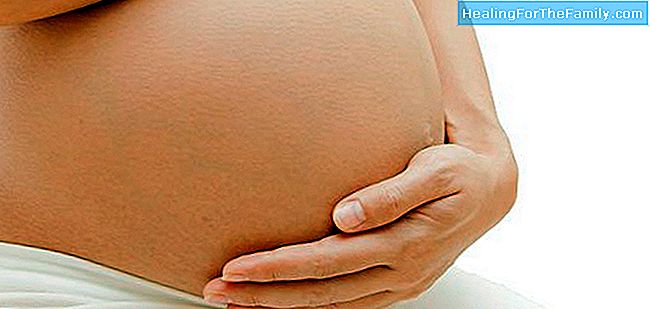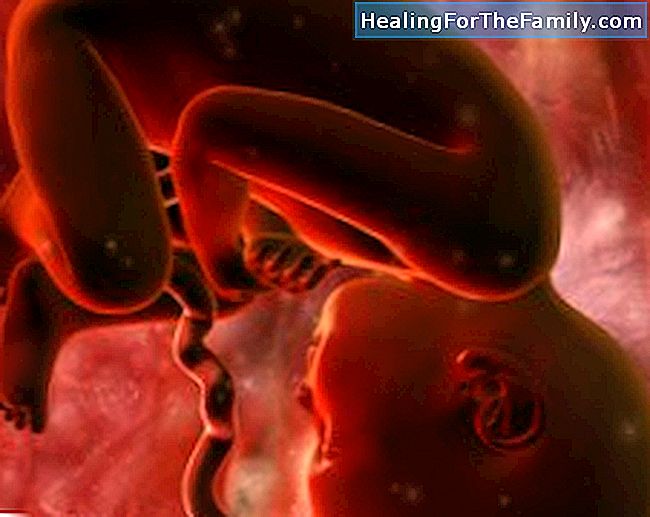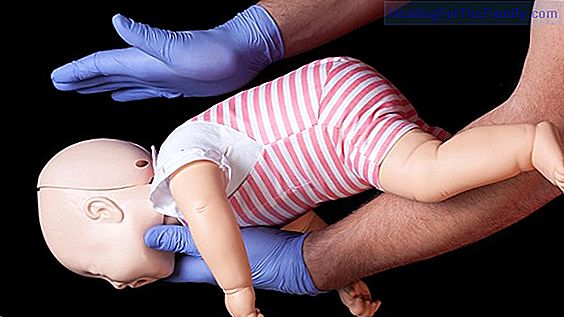39 Weeks of pregnancy
We are one week away from reaching the 40th week of pregnancy. The pregnancy week by week is about to end. In the week 39 of pregnancy , the pregnancy is so advanced that the woman feels already so heavy that it is difficult for her to walk and perform some basic personal tasks of her routine such a
We are one week away from reaching the 40th week of pregnancy. The pregnancy week by week is about to end. In the week 39 of pregnancy, the pregnancy is so advanced that the woman feels already so heavy that it is difficult for her to walk and perform some basic personal tasks of her routine such as dressing or putting on shoes.
Other heavier work both inside and outside the home can be a challenge too high for this stage of pregnancy in which pregnancy week by week is about to end with the onset of childbirth.
Changes in the body of the pregnant woman

The distance between the symphysis pubis and the fundus is 36 to 40 centimeters. The total weight that you must have gained up to this moment is between 11 and 15 kilos.
In week 39 of pregnancy it is normal to be upset due to pain caused by uterine contractions, which can be associated with cramps and leg pain, back pain, chills, nausea, vomiting and diarrhea.
Medical check-ups will occur every three days or less to check that the baby is well and that you can still wait for the birth to start on its own.
Sometimes, the gynecologist decides that the childbirth must be provoked by administering to the pregnant woman hormones such as oxytocin, because the baby is not well inside the uterus, or for other medical reasons.
The mother must be well informed of the reasons and the method that will be used by the medical team that attends her to advance the delivery, as well as of the possible alternatives.
Development and growth of the baby in pregnancy

In week 39 of pregnancy, the baby weighs about 3,250 grams and measures about 48 centimeters. Each time has less space to move inside the uterus. All the organs are mature and at any moment the birth can take place. The main characteristic of this period is weight gain and muscle strengthening.
The brain continues its development. For weeks, the baby alternates periods of wakefulness and sleep. Although he hardly has space, his movements are vigorous. He has well-defined facial features, has hiccups and sucks his thumb. The baby's head is embedded in the maternal pelvis and its cranial bones are flexible to adapt to the birth canal.
Health and emotions during pregnancy
During the 30th week of pregnancy, your medical team will perform a weekly monitoring in these last weeks of pregnancy. Monitoring is used to check the existence of contractions, but it is also a method of controlling fetal well-being. This test consists of the placement of some bands around the abdomen, which in turn are connected to a monitor. Meanwhile, on a paper, a graph is printed indicating the state of the fetus in the upper part, and uterine dynamics in the lower part. It is recommended to perform fetal monitoring in a normal pregnancy at week 40.
It is normal to imagine the baby and constantly think about it just before delivery. Avoid obsessing, since the most important thing is to prepare mentally to accept and face whatever comes. The courses of maternal education allow the future parents to face the moment of childbirth with serenity. But do not be surprised if the pain and fear prevent you from maintaining a calm and trusting attitude. Discuss all your doubts with the health professionals to get a better control of the situation.
Diet and feeding for the pregnant woman

A few days before giving birth, maintaining a good state of hydration is essential. Drinking 2 liters of liquid distributed throughout the day between water, milk, isotonic drinks and fruit juices will help to improve your state of optimal hydration. Avoid taking stimulant drinks such as coffee or tea. Fruits and vegetables are foods that also contain a lot of water in their composition.
Remember that it is a mistake to decrease your fluid intake, even if symptoms such as edema of the ankles and swelling of the legs appear or you feel the need to urinate more frequently.
Curiosities of week 39 of pregnancy
How much will your baby weigh and measure at birth? Through ultrasound, we can know before birth if the growth in size and weight of the baby is appropriate for their gestational age.
Once the baby is born, the average weight of a newborn should range between 3,000 and 3,500 grams, although the weight is considered normal if it is between 2,500 and 4,000 grams. When the weight is below 2,500 grams you will need to be in the incubator and your weight exceeds 4,000 grams, the baby will be more likely to develop hypoglycemia.
In the first days of life, it is common for the newborn to lose up to 10 percent of the weight at birth. This should not be cause for concern, since the baby will regain its initial weight around the tenth day.












